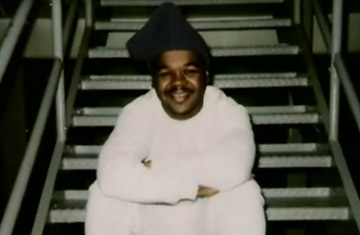
Curtis Osborne
(2 of 3)
Preparation for a first-rate capital defense can often take hundreds of hours, including an extensive investigation of the accused's childhood, mental health, drug abuse history and so on. But the law does not promise a first-rate defense. As a panel of judges from the 11th Circuit Court of Appeals said in denying Osborne's request for a new trial, "for a petitioner to show deficient performance" by an attorney, "he must establish that no competent counsel would have taken the action that his counsel did take." And how do you show that? "There are no absolute rules," the judges said vaguely.
So throughout Osborne's legal odyssey state and federal judges combed through his appeals in an effort to decide just how third-rate Mostiler's work actually was. Osborne argued that Mostiler should have uncovered exculpatory evidence. The courts decided that the evidence wasn't exculpatory enough. Osborne's lawyers said Mostiler should have called experts to challenge the prosecution case. Courts decided that experts would not have changed the outcome. Osborne challenged the failure to conduct a robust examination of the role of mental illness and addiction in his unraveling. The courts believed Mostiler's testimony that he never saw any evidence of drug abuse or illness. Instead, Mostiler chose to argue to the jury that Osborne's crimes were not premeditated, an ultimately unsuccessful strategy that appeals courts found to be nonetheless reasonable.
All in all, Osborne's has been a fairly typical capital appeal, in which the defense team heaps allegations on the original lawyer — the high-living Mostiler died of a coronary in 2000 — while the prosecution extols the brilliance of the condemned man's trial attorney. "Mostiler was the toughest trial lawyer in Spalding County," one prosecutor declared of a man far better known for engineering guilty pleas than for winning cases in the courtroom.
Which leaves the alleged racist remarks and the attorney's apparent belief that his own client deserved to die.
Those words didn't actually surface until years after they were allegedly uttered, when another Mostiler client at the time of Osborne's trial reported the slur. He said Mostiler indicated that he wasn't planning to work very hard to save the killer and that he wasn't telling Osborne that the state was offering a plea bargain to life in prison. The issue of the plea deal had already been raised in an earlier appeal before the lawyer's death, and when Mostiler testified that he conveyed the state's offer and Osborne turned it down, the appellate judges chose to believe him over his former client.
